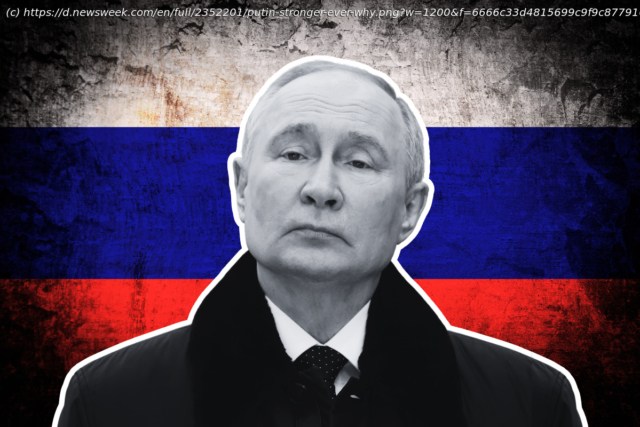Despite setbacks in Ukraine, the Russian president looks set to consolidate his power at next month’s elections.
Vladimir Putin has faced setbacks during his full-scale invasion of Ukraine. Now, two years into the war, circumstances appear to be turning in his favor, and his grip on power shows no sign of waning.
Ukrainian resistance at the war’s start saw Russian forces pushed back from Kyiv and, later in 2022, retreats from Kharkiv and Kherson delivered blows to Putin and bold headlines for Kyiv, as did strikes on Russian Black Sea targets, which continue.
But over the past few weeks, Putin has had some news go his way. U.S-led sanctions aimed at isolating Russia from the global financial system may have caused ructions but the IMF last month predicted GDP growth of 2.6 percent in 2024—more than double its previous forecast.
Also, Putin heads into an election on March 15 that he is assured of winning buoyed by the death of Russia’s most prominent opposition politician, Alexey Navalny, Western wobbles on more aid for Kyiv, and the capture of Avdiivka, in the Donetsk oblast.
«He’s also neutralized domestic opposition, with the deaths of Alexei Navalny, his most prominent critic, and Yevgeny Prigozhin, the leader of The Wagner Group. The message to Russians—if it can happen to them, it can happen to you.»
A vehement critic of Putin’s wartime conduct, Prigozhin seized military facilities in Rostov-on-Don and marched on Moscow with his Wagner Group of mercenaries.






